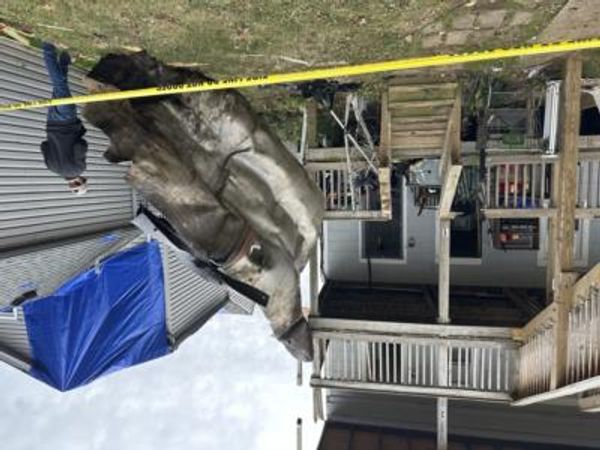In her structured jeans and tailored jacket, Julie Bates doesn’t raise any eyebrows as she walks through the automatic doors of the nursing home. At almost 75, with her meticulously styled hair and genuine warmth, she could easily pass as a spouse or daughter visiting a loved one. She walks with purpose, suggesting that she’s been here before. Knocking at the door of the nursing unit manager, she’s greeted like an old friend.
But Bates isn’t visiting a loved one. She’s a sex worker, and she’s been booked by the adult children of the gentleman she’s seeing in a nursing home on Sydney’s north shore.
Requests for sex workers to visit aged care facilities are on the rise. And it’s little wonder when you consider that the generation that pioneered free love in the 1960s and ’70s are now entering their twilight years.
“We’re having more baby boomers moving into aged care, and with that comes a need for care facilities to adjust to their needs and wants,” says Saul Isbister, co-founder and president of Touching Base, a referral network connecting sex workers and people with disabilities.
For Bates, the progression to seeing clients in nursing homes was a natural one. “Sex work has been part of my life on and off since I was 27. As you get older, you look to find new markets
for your services. And I’m of the same vintage [as my clients]. I don’t want to have a 25-year-old boy come to my home. If a 25-year-old comes to my home, it’s to fix my electrics or my plumbing,” she says with a laugh.

Humour aside, it’s clear Bates has a deep respect for her clients, and she goes above and beyond to ensure their experience with her is as dignified as it is enjoyable. “Usually it’s the nursing unit manager that books the appointment, after discussing it with the client’s family if necessary.
And as it gets closer to the appointment, I ask to have a phone call with the client. I want him to hear my voice so that the first time I meet him he recognises my voice. I tell him I’m looking forward to meeting him. I always make a point of finding out a little about them so I can make them as comfortable as possible when I arrive.
I find out what their favourite drink is, and I take it with me. One gentleman loved those old-fashioned custard tarts, so I took some of those along.” Bates is also aware that the men she visits may want to channel a time when they were younger. “I tell the staff I don’t want him in his pyjamas, to put him in his best robe, and to make sure he’s not wearing an [incontinence] pad. This is their time.”
So what does “their time” consist of, exactly? “Oh look, you’d be surprised,” says Bates, who has seen clients well into their nineties. “I don’t go in with any preconceived notions that this might just be a hand-holding, happy-ending kind of scenario. If they can still get an erection, they generally want to have penetrative sex.”
Her appointments at nursing homes usually last an hour and a half. “It gives us time to sit and chat and get a sense of what they want. So there’s a bit of social interaction and some music, some food. One gentleman I saw recently was Italian, and the chef at the lovely nursing home made us a beautiful antipasto platter while we got to know each other.”
Barbra Williams, director of Client Services at Dementia Australia, is passionate about advocating for the sexual expression of residents in aged care. “People living with dementia have a right to intimacy and to the expression of their sexuality, and have the same rights as any other person to participate in intimate relationships if they choose to. And when it comes to a person with dementia who is living in a nursing home, supported decision making is really important.”
It’s the supported decision making, however, that appears to be the biggest roadblock to residents in aged care gaining access to sex workers. In Bates’ experience, it is often the children of the would-be client who refuse the idea of a sex worker – or “intimate visitor”, as she refers to herself – seeing their parent. “It must be hard. You’ve got this elderly gentleman, and his kids may have never spoken to him about sex in their lives. Suddenly they’re being asked to agree to hire a sex worker for him. So credit to those family members who help with that.”
But, Bates insists, once those adult children see for themselves how much happier and settled their father is – until this point, she has only been booked to see men – they tend to make repeat bookings.

“You really get to know a family. These darling men are not long for this world. And sometimes you might be in Coles and you get a phone call from their family member in tears telling you their dad has died. They’re sharing this moment in time and sadness with you. You become part of that family.”
For sex worker and PhD student Rachel Wotton, the biggest obstacles appear to be outdated in-house policies that restrict sex workers from visiting residents in some facilities. “We’re living longer and the policies haven’t caught up with reality,” she explains. “There is a need for guidelines and adequate training. Without that, [employees] are deciding ad hoc, based on their own moral compass and their religious beliefs … instead of being guided.”
It also comes down to an assumption that our senior citizens no longer desire sex, adds Wotton. “I think people think that if people can’t autonomously move their body or they need assistance with bowel care, that they’ve suddenly become asexual.”
While there are definitely hoops when visiting clients in nursing homes, sex workers are willing to jump through them. For example, dementia wards, where most of Wotton’s and Bates’ clients reside, tend to be locked, meaning access requires an explanation of your relationship to the resident.
That can be awkward for the sex worker as well as the client if there’s a lack of understanding at the front desk. “When there’s third-party support, there’s a lot more communication and preparation and discussion involved,” says Wotton. “Once you get into a regular routine, if people find their favourite sex worker and if the funding is available for, say, once every four weeks, everyone knows how to get the money out, everyone has it in their diary, and then it actually runs like clockwork. But, at the beginning, I always say it’s like a three-ring circus.”
The pair say the benefits of their services to aged care clients are numerous. For starters, says Bates, it can help a dementia patient reduce inappropriate behaviour to other residents and staff. “People with dementia can become disinhibited [and] no longer realise what is and isn’t acceptable behaviour. A resident may be reaching out and touching other residents, or holding up the nursing staff in the linen closet. They don’t remember they need to get consent, they just want to touch. So usually there’s been some incident in the nursing home and this has been deemed inappropriate. And some of the brilliant nursing unit managers understand what’s going on, and they’ll call me. They see the rights of a senior person to have an intimate existence.”
It raises a question: if a dementia patient isn’t in the frame of mind to ask for consent, are they in a position to give it? Barbra Williams believes so. “There is a term called ‘implied consent’, which means that while you might not be able to get verbal consent from a person living with dementia, they can often give implied consent, which isn’t expressly granted but is implied by the person’s actions and the way they respond to a situation,” she says.

“I would suggest that the response of a resident who has had a sex worker provided for them needs to be observed in the early stages of the interaction, to see how the person responds to the opportunity. It’s about ensuring the sex worker understands what dementia is about and is appropriate in the way they view the interaction, ensuring that if there is any resistance they withdraw from the person’s room.”
It’s an issue Bates and Wotton are acutely aware of. “If you’re engaging with a dementia patient, at the start they’re normally quite present,” explains Wotton. “I don’t do anything unless I can see there is active and enthusiastic consent. There’s a multitude of ways [to determine consent], and as professionals we know how to do that. I see clients where their communication method is thumb up for yes, down for no. So you become very skilled at asking closed questions.”
Bates agrees: “One of the things I do is ensure that the client personally hands me the money. The deposit may well have been made, but the balance is in an envelope. They know it’s money and they’re giving it to me. So part of that consent is that you have paid for it. This also works as an educational tool, which helps the client not to make advances on people without consent. If you don’t have another white envelope to pay Mary next time she comes in to change your bedding, you can’t touch her. So it’s also an educational process.”
Years of working in aged care facilities has also taught Bates to time her bookings. “There is this thing people with advanced dementia experience called ‘sundowning’ [where] in the mid-afternoon they can get very upset, really sad. So I try to coincide my visits around [then] because I’m going to distract them and give them some fun pleasure in the sundown hour or two.” According to Dementia Australia, sundowning can make a patient more demanding, upset or suspicious, or believe things that aren’t real.
“Sometimes I’ll get a call from the nursing unit manager after I’ve gotten home and they’ll say, ‘He’s sleeping like a baby,’” says Bates. “An orgasm can help relax all the skeletal, muscular stuff. So they can be a lot more comfortable. And they don’t feel so alone.”
Sure, sex work is a job for Bates and Wotton, but there’s no denying they’re passionate about campaigning for the rights of their clients as well as their fellow sex workers. Bates has long been an advocate for the underdog. In the 1980s she pushed for brothel owners to make condom use mandatory with the arrival of AIDS.
She was awarded the Order of Australia in 2018 for her decades championing the rights of sex workers and mobilising the sex industry against the spread of HIV/AIDS. “I don’t spend all my time in other people’s bedrooms,” says Bates.
“I spend most of my time in the council chamber beneath Parliament House, educating for law reform and better treatment for the people who do this work.”
Likewise, Wotton hopes that her PhD, which focuses on the needs of intimacy among the disabled and elderly, will help challenge the outdated policies of some aged care facilities. “We know through medical practices and through research that [touch] is so important,” she says.

“With babies, they now realise that putting them skin to skin with their parents helps with the healing process … Similarly, during Covid, one of the things everyone was very loud about was that they really missed hugs. And in the aged sector, you could really see how people were struggling. It was hoped this focus on the need for intimacy and connectivity would extend after the Covid lockdowns, but unfortunately people have very short memories.”
This was the driving force behind Wotton’s PhD: to provide the evidence decision-makers need to make sex workers available to those with a disability or in aged care.
The reality of working with clients at the pointy end of their life hasn’t been lost on Bates, and she has at times contemplated what her future years may look like. “It obviously becomes a bit more personal. You definitely become closer to the subject matter,” she says. “I hope that if it were me in the nursing home that my needs would be met and I’d also have my dignity. I think it would take a pretty cold-hearted person not to have an emotional response.”
What Impact Will NDIS Bans On Sex Work Access Have?
Since 2020, NDIS (National Disability Insurance Scheme) participants have been able to use funding to engage sex workers. A decision that has allowed individuals with disabilities to have greater autonomy over their own sexual needs by providing safer access to professional sex workers who can better understand and meet their unique emotional and psychical needs.
Earlier this month, NDIS Minister Bill Shorten announced that under his planned reforms, sex work will be banned from being funded through the NDIS.
In response, a number of disability advocates have raised concern that not only does the ban put the choice of which people with a disability have sex in the hands of the government, but it also forces an already largely vulnerable group to seek more affordable and often less safer options where they are out at risk.
“Changing this law would mean you’re now actually having the government choose whether some people with disability are having sex,” argues People with Disability Australia president, Marayke Jonkers. “Even within the disability community there are people who are like, ‘Yes I want to pay for that, or no I want that to be for love only,’ at least we respect each other’s right to choose, we don’t have a piece of legislation making that choice.”
While there is limit research into the mental and psychical benefits of sex work engagement for people with disabilities, what is evident that taking away opportunities for touch and intimacy is detrimental to the lives and wellbeing of the individuals who are currently accessing NDIS funding.
“Government departments, [such as] the NDIS or the NDIA, say there is no evidence [that sex workers provide a legitimate therapy]. But I know from my professional connections with other sex workers … that anecdotally this is very important and that there are many different layers and … roles sex workers can play in people’s lives,” says Wotton.
If you need someone to talk to, call the National Dementia Helpline on 1800 100 500.
This article originally appeared on Marie Claire Australia and is republished here with permission.







